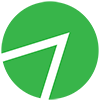The Benefits of Building a Personal Brand for Freelance Journalists
The New York Times didn’t have a website until 1996. In less than 30 years, journalism has become media and content — today news is often updated in hour-by-hour live blogs and the whole industry has been transformed by social media. Legacy newsrooms have dedicated teams to apps like TikTok and YouTube, whereas five years ago those teams wouldn’t exist. We’ve watched the clickbait era of listicles come and go and Facebook’s numerous algorithm changes. Whereas 2016 brought the infamous pivot to video. Along with these changes came many, many layoffs.
Journalism has had to adapt parallel to our access to information and each other, exposing how desperately newsrooms needed a facelift. And, subsequently, how much talent is out there that doesn’t necessarily come out of top-rated journalism schools or nepotism.
An ongoing point of contention among journalists recently became a debate on Twitter when Taylor Lorenz referenced the oft-eye roll inducing “personal brand” conversation and its place in the future of media. In an interview with Business Insider about her former employer’s policy on outside opportunities, she said, “Younger people recognize the power of having their own brand and audience, and the longer you stay at a job that restricts you from outside opportunities, the less relevant your brand becomes.”
Arguments against journalists upholding a personal brand are rooted in the idea of reporting the news and not being it. However in this new media landscape, these ideas completely ignore implications of homogenous editorial teams and often walk the line of gatekeeping. They overlook the access a personal brand can afford marginalized writers. Plus, those living outside of major cities and the range of reasons and routes one may take to brand themselves.
The irony of credibility
It seems the dismay around journalists branding themselves is the intention behind it and whether or not it detracts from their credibility. If a journalist with an extremely well-executed personal brand and large following is not credible, the media outlet, editor or hiring manager can simply not hire them.
Three major tenets of branding, and specifically personal branding, are determining and understanding your target audience, defining your story, and positioning your product, service or business.
In terms of freelance journalists, the desired audience can be an audience of readers or the editors that hire you. These can require a different approach and a significantly different amount of work. But amassing a large following of readers can be attractive to editors for bringing more diverse audiences to their site. While targeting editors can be seen as entrepreneurial branding as you’re offering services to benefit their readers.
Benefits to branding
Workload-wise, building a following may look similar to that of an influencer and require content production for more engagement. Nonetheless, it’s beneficial to promote your work and create conversation around it via social media whether you’re going for huge numbers or simply want editors to see what you’re working on. Both of these paths create a larger reach for freelance journalists and bring more traffic to whoever hires them. This is a win-win whatever way you spin it.
Baseline, this can be as small as a portfolio website with a bio, a collection of clips, how to contact you posted on your LinkedIn and sharing new work as it publishes. On the other hand, it can be as grand as creating TikTok content around your work and output with the intention of amassing a following.
A greater reach can be beneficial in a few ways. It can expose your work to new editors and new outlets affording new places to pitch and editors to commission work from you. You may get tapped into different online communities, too. This could warrant a wider pool of sources. And, it can also keep publicists abreast of what you’re writing and create access to their clients.
Do freelancers have to build a brand to survive?
Some of the discussion also includes those that don’t want to put the work into maintaining a personal brand. And truthfully, you don’t have to. While it can make building relationships easier and bring in opportunities, if you don’t need that, it isn’t a requirement. Because it is your personal brand, should you need to cut back on the content to deter burn out or ramp up because of your goals, you get to do that. It’s yours and you’re in control.
Freelancing can feel like perpetually being in the job application process – applying for and negotiating each and every assignment. For some, maintaining a personal brand is a means of survival.
By operating as an entrepreneur and leveraging a personal brand, it becomes about running a sustainable business and investing in yourself for the longevity of your career. Not becoming the news or looking for attention. It affords agility in an industry where, in the past, individuals often hinged their identity on where they worked rather than the range of what they’re capable of. If there’s anything we learned about business during the pandemic, it’s the value of diversifying your income.
Freelance writing is approached like a small business at tax season. Why not approach it as such the rest of the year? Ultimately, the establishment and upkeep of a personal brand is to create more opportunities, and with the state of the media landscape and the working conditions of those in full-time roles investing time into yourself can afford job security and opportunities
that one company, or the industry itself, can’t.

 Sign Up
Sign Up